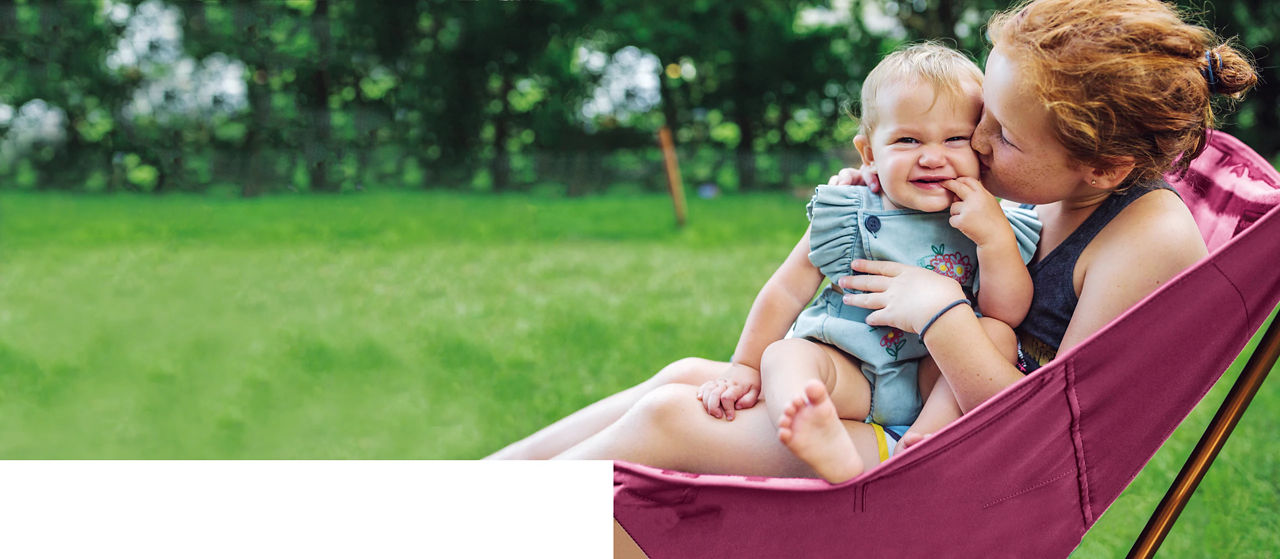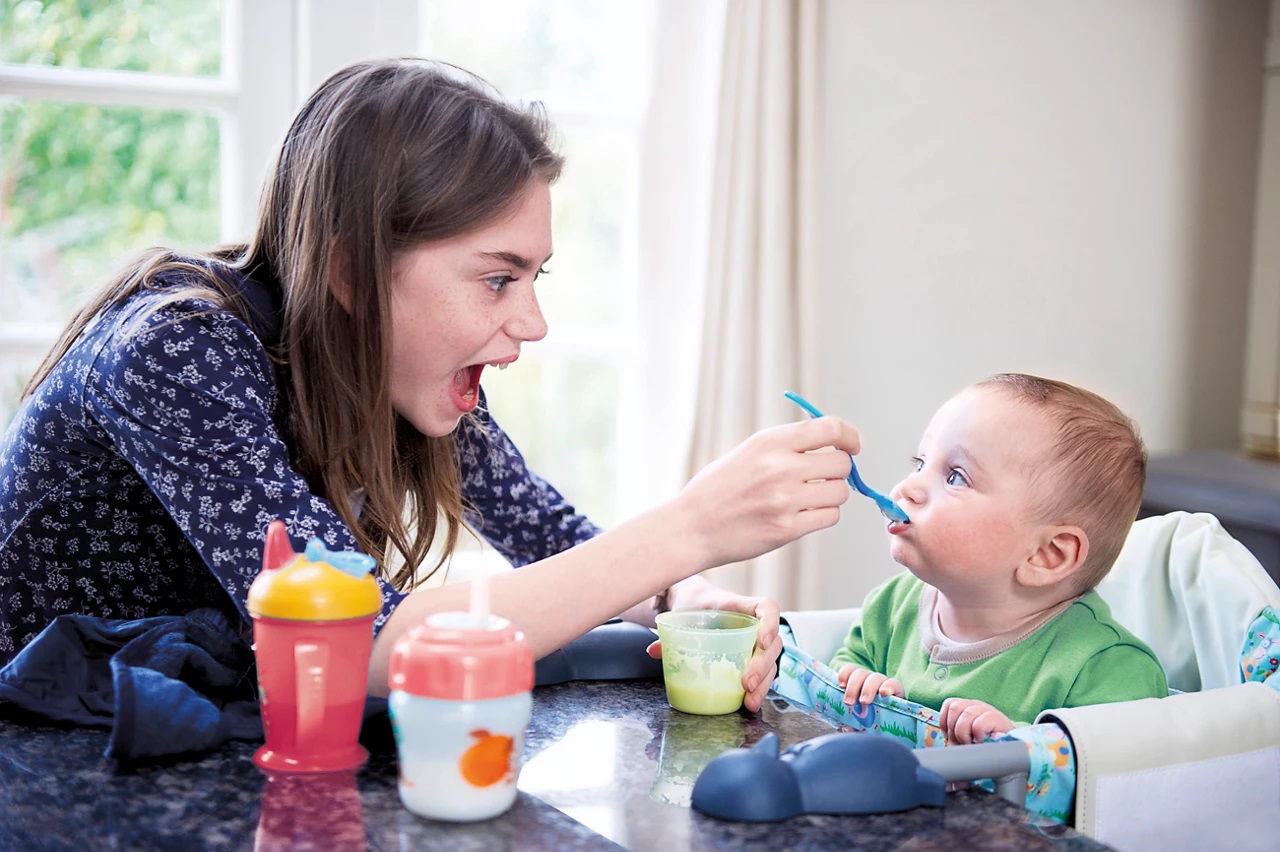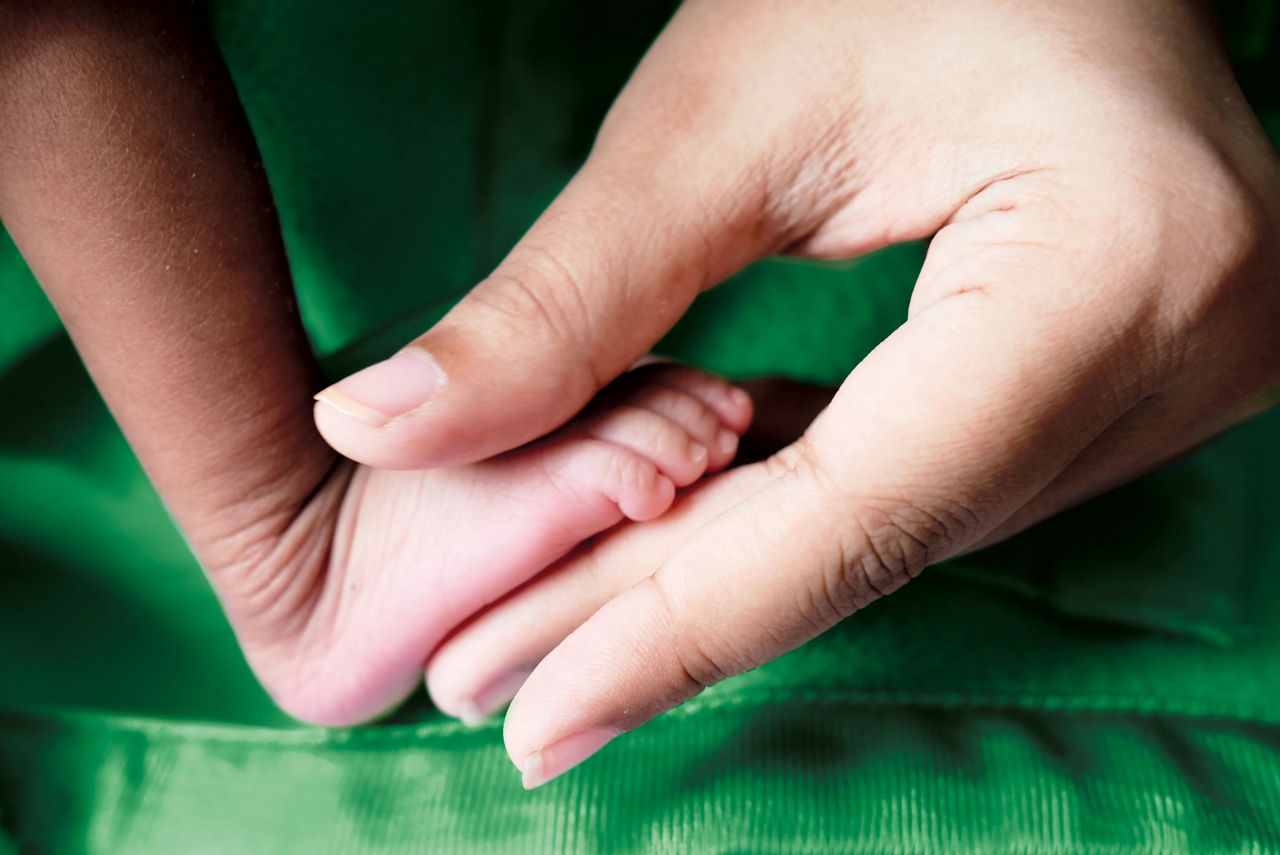Free weaning plan - Register here
Helping your little chatterbox get started
Babies are brilliant little sponges and will learn by copying you, so try talking to them as much as possible. A running commentary of the day will help them understand the world around them as well as teach them new words. And pointing out people and places will help them learn names. Gestures and actions like a little wave when you say ‘hello’ or ‘bye-bye’ can be a real help too – you never know, you might even get a cheeky ‘hi’ or ‘bye’ in return! Your body language and tone of voice also play an important part, helping your baby understand if something is good or bad. So bear that in mind too when you’re explaining things.

Developing their language skills
At this stage they’ll be able to respond to simple questions or instructions. So if you ask them where their teddy is, they’ll try and hunt it down, or if you ask what noise a cow makes they might make a funny little ‘moo’ for you! Although they can’t answer you back yet, talking to your baby is the most important way to help them develop their language skills. They’ll also start to see how people take turns in conversation. So chat, read or sing together as much as you can to help those words slip out. Remember, babies love to know when they’ve done something well, so don’t forget to pile on the praise every time they make a word or sound!
By the time they reach 18 months, you can look forward to having a few little chats together. Many toddlers can say at least 10-20 words by this stage, but they’ll understand a whole lot more than they can speak. And by their second birthday they may know around 200-300 words! Every toddler is different though, so let them progress at their own pace with lots of encouragement.
Feed their development
You might not know this but chewing is thought to help your little one develop the muscles they need for speech. That’s why it’s great to give them chunkier textures and solids to chew on when they’re ready.
A variety of tastes and textures can help them get the nutrients they need to support healthy development. As their little personality starts to shine through, make sure they get lots of iron-rich foods like red meat, eggs, lentils and leafy green vegetables along with omega-3 fats found in oily fish such as salmon and mackerel. If you need any extra inspiration, we’ve got lots of delicious weaning recipes that should help keep your little talker happy.
You’ve done a great job so far. Now it’s time to encourage those words – but not when their mouth’s full!

Join our baby club
Ready to stop worrying about what other people think and do what feels right to you? We’ll give you the support you need to follow your instincts and enjoy parenthood to the max:
Helpful emails
Non-judgemental support
Free weaning plan
Tips from real parents
More from baby
Baby topics
Need free advice with a smile? Get in touch with our dedicated Care team.
Ask us a question (8am - 8pm Monday to Friday, 10am - 4pm Weekends)
Messenger
Contact us on Facebook ( 10am–10pm Mon–Sat, 10am–5:30pm Sun)
Call us
Call us on 0800 977 8880 (8am - 8pm Monday to Friday)
FAQs
Get answers to your most frequently asked questions




?ts=1701080540787&dpr=off)
